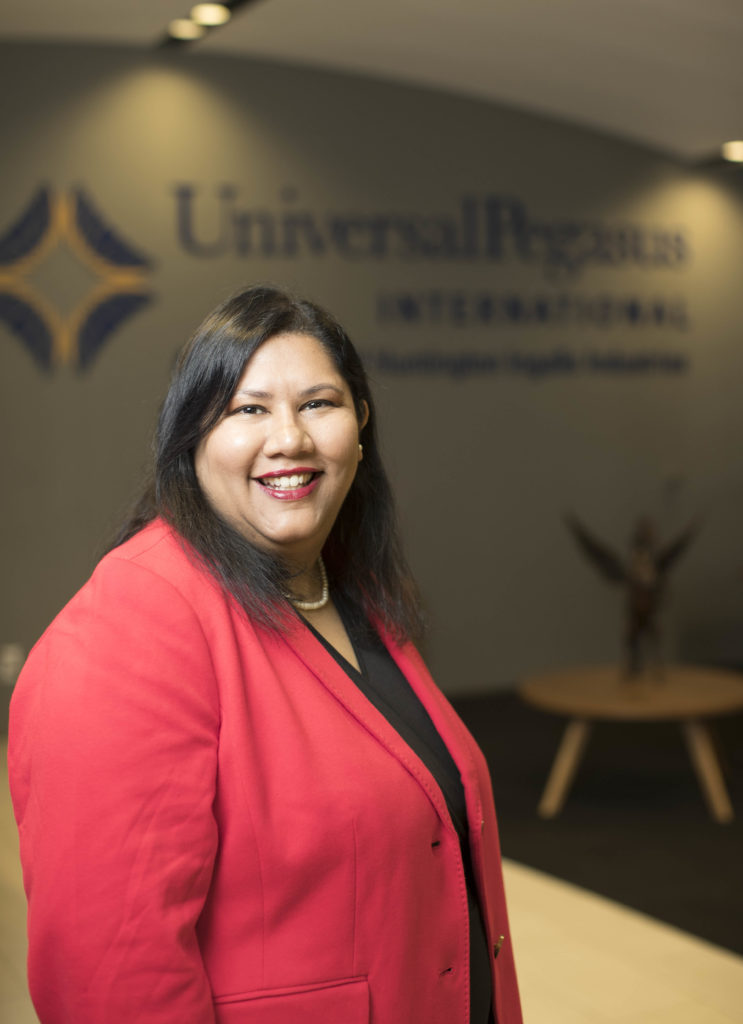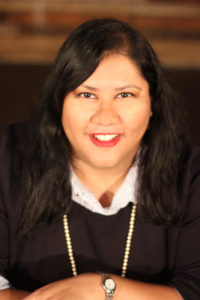
Fermeen Fazal, Barrett Reasoner and lawyers at Gibbs & Bruns were deposing a physician assistant in a 2006 pro bono case involving a Texas inmate who went blind while incarcerated in the state’s prison in Madison County.
The client, Donovan Trahan, repeatedly asked prison officials in September 2003 to see a doctor because he suffered from severe headaches and he thought he was going blind. Repeatedly, his requests were ignored.
He asked again, and prison officials told him he was lying about his eyes.
Less than a month after Trahan asked to see a physician, his eyesight was gone. He was permanently blind.
A federal judge appointed Gibbs & Bruns in Houston, to represent Trahan in his civil rights lawsuit against the state of Texas. Such cases are vigorously opposed by the Texas Attorney General’s office and are nearly impossible for inmates to win.
“I really wanted to find out what went wrong and get our client some justice,” Fazal told The Texas Lawbook in an interview.
The critical moment in the litigation came during the deposition of a physician assistant who worked at the prison.
“What happened here? Why was Mr. Trahan not seen by a doctor?”
The physician assistant paused for several seconds. “I guess we just didn’t care,” he answered.
A few weeks later, the state attorney general’s office did something they almost never do: they settled with Trahan, giving him an undisclosed amount of money.
“What happened in this case was horrible and tragic and I really felt like my work helped achieve some justice,” Fazal said. “Maybe it helped improve the prison healthcare system, too.”
Fazal is now chief counsel and chief administrative officer for Houston-based UniversalPegasus International, which provides project management, engineering and design expertise to companies in the oil and gas industry.
During her four years at UPI, she upgraded the company’s ethics and compliance efforts, was a critical member of the executive leadership team that expanded the business’s footprint into the construction space. She also put together and implemented a risk register plan and a contract management strategy related to the expansion. In addition, company executives created a new business unit that handles the acquisition of subcontracting services, and Fazal was put in charge it.
Recognizing her tremendous successes, the Association of Corporate Counsel’s Houston Chapter and The Texas Lawbook have recognized Fazal as a finalist for General Counsel of the Year for a Small Legal Department in the 2019 Houston Corporate Counsel Awards.

“Fermeen is a brilliant and capable lawyer, who knows how to anticipate problems and keep us out of trouble,” UPI Director Fateh Tajani wrote in nominating Fazal for the honor. “Her negotiation skills are impressive and because she’s so nice, you forget that she can be a fierce advocate for the company.
“The President of UPI has given her the nickname the ‘Ferminator’ because she can be tough like the Terminator, but she’s always got a smile on her face and her door open to help me,” Tajani wrote. “Some lawyers can be hard to talk to, but Fermeen is not an ivory tower attorney. We think of her as teammate and business partner, which is a very refreshing way to think about a lawyer.”
Barrett Reasoner, who worked on the pro bono case with Fazal, said she is “very smart, diligent and passionate about the work she does.”
“Nowhere was that more evident than in the prisoner civil rights case that we worked on,” Reasoner said. “Fermeen did an outstanding job of developing the case. She treated the case with as much enthusiasm and diligence as any of our cases and was always positive and compassionate in her approach. I know those same attributes have helped make her extremely successful as corporate counsel and will continue to do so.”
Born in Karachi, Pakistan, Fazal was nine months old when her parents moved to Saudi Arabia for work. While her mother and father had law degrees, neither practiced law. Instead, Fazal’s father worked in the building materials industry supporting engineers, while her mother worked in the non-profit sector.
When Fazal was 12, she and her family moved to Houston, where her father opened a chain of dry cleaning stores.
“Everyone loves the story of the immigrant who comes to the United States with $20 and a dream and then achieves greatness,” she said. “But for every story like that, there are the failures, too.
“My dad’s business did not do well,” she said. “It was started when interest rates were high, the chemicals used in the dry cleaning were being regulated, and he lost his savings. There were some very lean years when I was in high school and college.”
Fazal said her parents stressed the importance of education but never pushed her to go to law school. She said it was her high school speech and debate classes that initially got her thinking about law as a career.
“I loved Tom Cruise’s line in A Few Good Men, when he says, ‘It doesn’t matter what I believe. It only matters what I can prove,’” she said. “Proving a case is what cross-examination debate was about.”
Fazal earned undergraduate degrees in biology and English.
“I was on the fence about law school or medical school for a long time,” she said. “I could have gone either way. Ultimately, I chose law school because I found it the better fit, and it was a faster way to get a professional degree and earn some money.”
Upon graduating from the University of Houston Law Center in 2000, Fazal did a one-year stint as a briefing attorney for then-Texas Court of Appeals Judge Michael Schneider.
In 2001, Fazal joined Locke Lord as an associate in its litigation and appellate sections.
Only a few months into her new job, Fazal was asked by Locke Lord partner John Hill, who was a former Texas Supreme Court chief justice, to help research and write an amicus brief in a pending U.S. Supreme Court case.
A state court judicial candidate in Minnesota challenged a state supreme court rule in the canon of judicial conduct that prohibited him from publicly campaigning about how he would decide certain cases or issues if he were to win. The Minnesota candidate said the rule violated his First Amendment right to free speech.
“Judge Hill got 36 former state court justices from across the country to join together in an amicus brief supporting the canons of judicial conduct,” Fazal said. “It was an amazing project for a young lawyer to handle involving such big constitutional issues.”
Fazal flew to Washington, D.C., to see the oral arguments on March 26, 2002.
“It was my first time to hear an argument at the Supreme Court, and it was amazing,” she said. “[The courtroom] was darker and smaller than I expected. When the clerk said, ‘All rise,’ I got immediate chills.”
The Supreme Court, in a 5 to 4 opinion written by Justice O’Connor, ruled against Fazal’s argument, but she said it remains one of the most thrilling days of her legal career.
In August 2003, Fazal’s career took another turn.
“Justice (Michael) Schneider called me saying he was moving to the Texas Supreme Court and he was the low-man on the totem pole, and he said he needed my help,” she said.
For one year, Fazal helped Justice Schneider run his chambers and draft opinions.
In 2004, the Houston litigation boutique Gibbs & Bruns hired Fazal as a lawyer in its litigation section.
“Gibbs & Bruns also gave me a broad exposure to the various parts of the law, and this exposure has served me well in-house,” she said. “I worked on cases where we represented plaintiffs and defendants, outside directors and C-suite executives, and all kinds of companies.
“Each case was different,” she said. “I learned a little employment law when there was an executive compensation issue, a little insurance law when there was a coverage dispute, a little bit about the M&A process when a deal didn’t close after a purchase and sale agreement was signed, and picked up a lot of oil and gas lingo – Did you know a pig helps clear a pipeline? – when I worked on a take-or-pay case.
“This work helped make me an issue-spotter, and that’s a great skill to have in-house,” she said.
Tajani said that Fazal’s ethics lessons are fun and engaging and have real-life applications.
“Fermeen always says she’d rather hear about a problem from us instead of hearing about it from a lawsuit, so it makes my team of project managers feels safe in raising issues,” Tajani said. “In our industry, safety is paramount. Thanks to her efforts on raising the importance of ethics and compliance, we now begin meetings with values moments. So, she is influencing the business and always says that doing things the right way is critical to our future because our reputation matters.
“Once I came to Fermeen about a contract and said that I believed the client was trying to accomplish XYZ in the agreement,” Tajani said. “She explained the ‘Four Corners Rule’ to me and said that if it doesn’t say it within the four corners of this document, what I believe really won’t matter to a judge. It was such a good way of driving her point home, and we got clarity from the client.”
Fazal said she likes working as an in-house counsel because she gets to “wear a lot of hats.”
“I get to practice law, manage people, plan a business strategy, advise my leadership team, and I get to talk to smart people and help them solve problems every day,” she said. “The day is never the same.”
